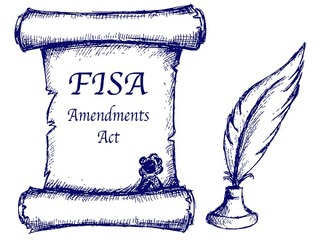Digital health funding declines for the third year in a row
AI-enabled digital health startups raised $3.7B, 37% of total funding for the sector
Read more...
Editor's Note: Our annual Vator Splash Spring 2016 conference is around the corner on May 12, 2016 at the historic Scottish Rite Center in Oakland. Speakers include Nigel Eccles (CEO & Co-founder, FanDuel), Andy Dunn (Founder & CEO, Bonobos), Mitch Kapor (Founder, Kapor Center for Social Impact); Founders of NextDoor, Handy, TubeMogul; Investors from Khosla Ventures, Javelin Venture Partners, Kapor Capital, Greylock, DFJ, IDG, IVP and more. Join us! REGISTER HERE.
Looks like Apple isn't the only big tech company who has a beef with the Federal Government.
Microsoft has filed a lawsuit against the Justice Department, as well as Attorney General Loretta Lynch, regarding its ability to inform users when a federal agency is looking at their emails.
The clash is over the Electronics Communication Privacy Act (ECPA), signed in 1986, which amended the Federal Wiretap Act of to1968 applies to electronic communications, including email, telephone conversations, and data stored electronically.
"Microsoft brings this case because its customers have a right to know when the government obtains a warrant to read their emails, and because Microsoft has a right to tell them. Yet the Electronic Communications Privacy Act ('ECPA') allows courts to order Microsoft to keep its customers in the dark when the government seeks their email content or other private information, based solely on a 'reason to believe' that disclosure might hinder an investigation," it says in the suit.
"Nothing in the statute requires that the 'reason to believe' be grounded in the facts of the particular investigation, and the statute contains no limit on the length of time such secrecy orders may be kept in place."
The suit calls the orders a violation of both the First Amendment, by infringing on Microsoft's ability to talk to its customers, and the Fourth amendment, "which affords people and businesses the right to know if the government searches or seizes their property."
In all, between September 2014 and March 2016, Microsoft said it received 5,624 federal demands for customer data, of which nearly half, 2,576 of them, had a secrecy order which disallowed the company from telling customers.
In all, 1,752 of those orders have no time limit, which means that the customers might never know.
In a blog post, Brad Smith, President and Chief Legal Officer at Microsoft, expanded further on why the company felt this lawsuit was necessary.
"We believe that with rare exceptions consumers and businesses have a right to know when the government accesses their emails or records. Yet it’s becoming routine for the U.S. government to issue orders that require email providers to keep these types of legal demands secret. We believe that this goes too far and we are asking the courts to address the situation," he wrote.
Smih acknowledged that, of course, there are times when such secrecy is warranted but that it has gone overboard.
“We don’t take lightly this type of action — filing a lawsuit against any government,” he wrote. “We only do so when we believe that critical principles and important practical consequences are at stake.”
Microsoft has a commitement to transparency. In the comoany announced that it was launching a new Transparency Hub, bringing together its existing transparency reports, while also including a new transparency report that details requests it receive from a variety of parties seeking the removal of online content.
This disclosure might make some wonder, though, if are we getting the full picture and if companies like Microsoft (and there is no way that it is the only one to receive such orders) are able to fully disclose the actual number of data requests they receive.
The gag orders have been included in all of Microsoft's past transparency reports, though they have not been separated out until now.
The timing of the lawsuit is interesting, considering that there is other activity on this front from the government itself.
This comes only a day after the House of Representatives voted on the Email Privacy Act, which closes a loophole in the ECPA that required a warrant to search electronic communications only when the content is less than 180 days old. If the bill passes it will require law enforcement to require a warrant no matter how old the email is.
(Image source: vpnexpress.net)
AI-enabled digital health startups raised $3.7B, 37% of total funding for the sector
Read more...OXcan combines proteomics and artificial intelligence for early detection
Read more...Nearly $265B in claims are denied every year because of the way they're coded
Read more...